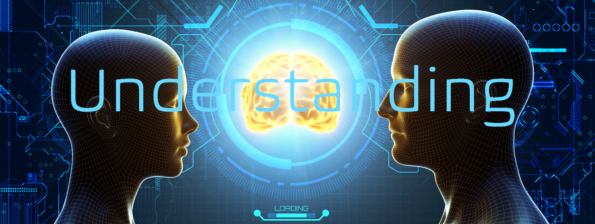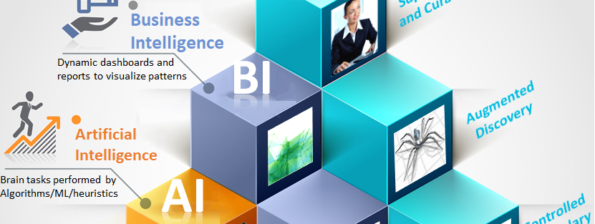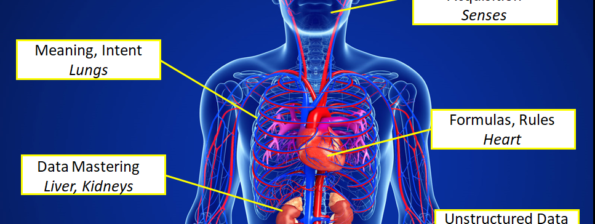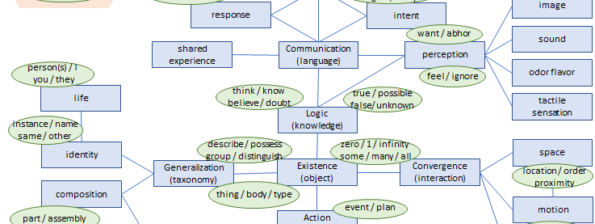Home »
Archive by category "Science" Category Archives: Science

Joe Roushar – February 2024 Sense Perception and Cognition What can you infer about the things in this picture: Our senses are constantly feeding information to our brains, but how much can we trust? Inference is guesswork performed by the frontal cortex based on circuitous electrical signal pathways from the sensory parts of the brain, […]

Joe Roushar – January 2023 What are You Talking About? Is pure democracy possible in human society? Introducing everyone to a truly democratic society would put them on the same footing – provide a kind of equality and shared opportunity that philosophers have envisioned for millennia. Yet experience has shown us that some delegated decision […]
Posted by
Joe Roushar in
Communication,
Computing,
Decision Automation,
Knowledge,
Learning,
Linguistics,
Neural Networks,
Software Design,
Technology,
Translation , Followed with
Comments Off on Pure Democracy: a New World Disorder

By: Joe Roushar – January 2020 I think I understand Ideas of devices becoming sentient need not be frightening. Thinking and being seem to be tightly bound: Je pense, donc je suis (Descartes 1628). Some have riffed on René’s theme to suggest the idea that sentience is defined by symbolic thought and expression (language), but […]

By: Joe Roushar – November 2018 AI: Artificial Intelligence Can you understand the things you observe and use them to make better decisions? Random colored dots that seem chaotic up close, when arranged by an artist in a pointillist painting, can become richly meaningful and appealing. The dots may have great variety in color and […]
Posted by
Joe Roushar in
Business,
Chaos,
Computing,
Decision Automation,
Decision Automation,
Enterprise Applications,
Expert Systems,
Knowledge,
Learning,
Neural Networks,
Neuroscience,
Ontology,
Smart Search,
Software Design , Followed with
3 Comments.

Joe Roushar – July 2018 Not just any body Body is a versatile word as it has broad application. In the context of astronomy, we describe celestial bodies. In topographical mapping, there are bodies of water. But in my interactions, I most often encounter “body” in the context of human physiology. The word, “body” implies […]
Posted by
Joe Roushar in
Big Data,
Business,
Cognitive Science,
Commerce,
Computing,
Enterprise Applications,
Expert Systems,
Knowledge,
Learning,
Linguistics,
Memory,
Neuroscience,
Ontology,
Software Design,
Technology , Followed with
1 Comment.

Joe Roushar – May 2018 I relate, therefor I am Interaction between humans is intricate, intimate and beautiful. Good conversations are like dances and can leave one feeling fulfilled and whole. I have long wanted to build a system that can verbally dance with you. Even longer, one to rapidly translate what you say with […]
Posted by
Joe Roushar in
Big Data,
Chaos,
Cognitive Science,
Communication,
Computing,
Enterprise Applications,
Expert Systems,
Knowledge,
Learning,
Linguistics,
Neural Networks,
Neuroscience,
Ontology,
Philosophy,
Social Interaction,
Software Design,
Technology,
Translation , Followed with
Comments Off on What it Means to Be, and Why AI Needs to Know

Joe Roushar – April 2018 Promises – Promises Agile Information Technology (IT) promises to deliver automated capabilities to users more quickly, and, to a great extent, has achieved this. But to many, IT stands for Ivory Tower, and, other than the privileged few, most people in businesses are on their own unless their needs are […]

Joe Roushar – July 2017 Divide and Conquer Swarm computing applications, with large numbers of autonomous agents are beginning to appear and deliver stunning results. The combination of autonomy, simple tasks and parallelism has great power. Today I’ll address parallel computing and models for breaking down computational problems. I will not address the question of autonomy today, […]
Posted by
Joe Roushar in
Cognitive Science,
Computing,
Consciousness,
Knowledge,
Learning,
Memory,
Neural Networks,
Neuroscience,
Ontology,
Perception,
Software Design,
Technology , Followed with
Comments Off on Cognitive Multi-Processing












